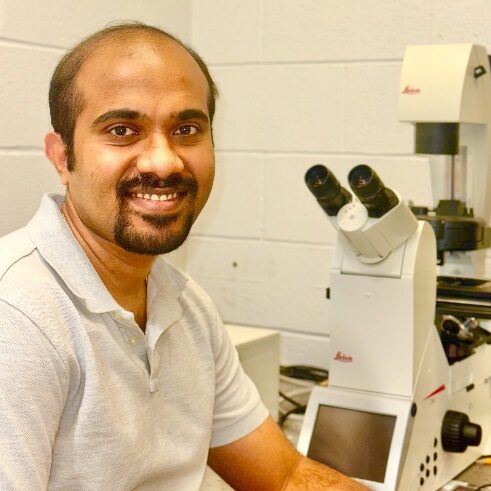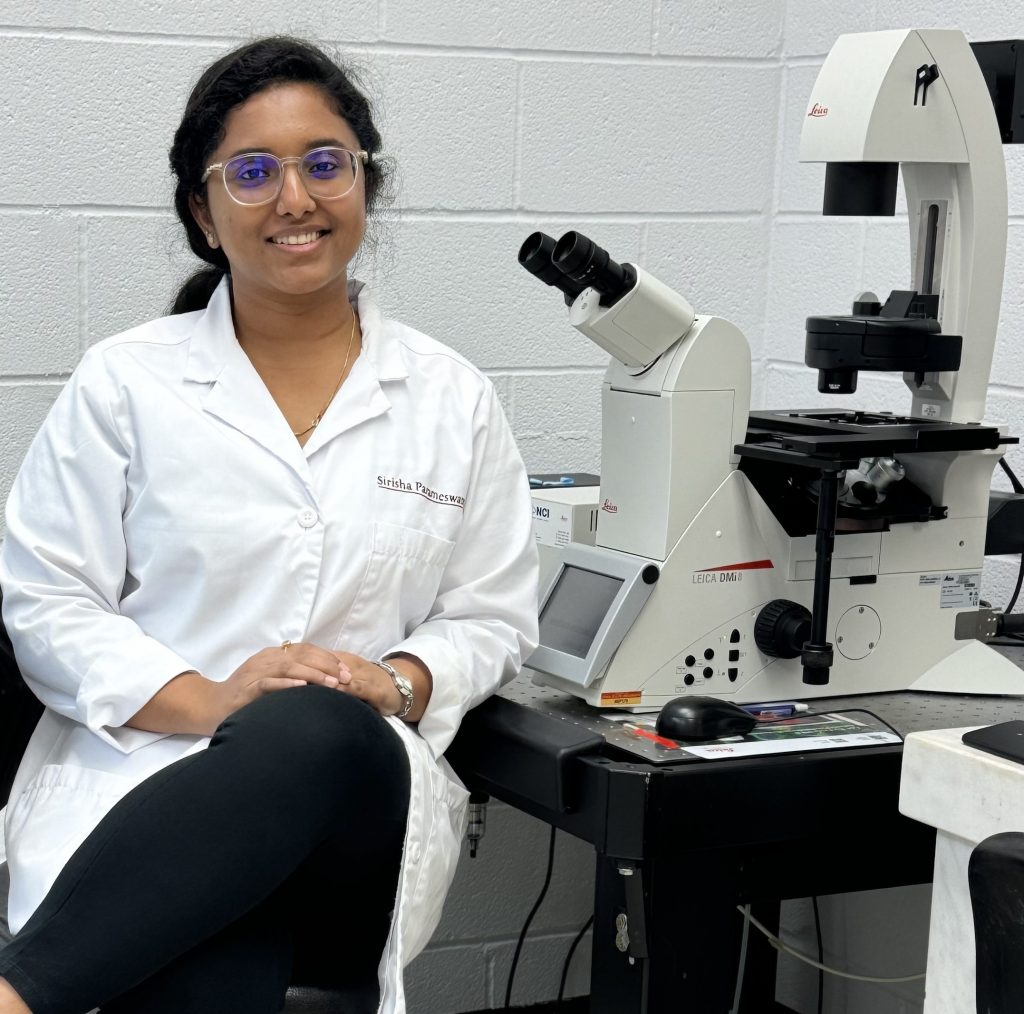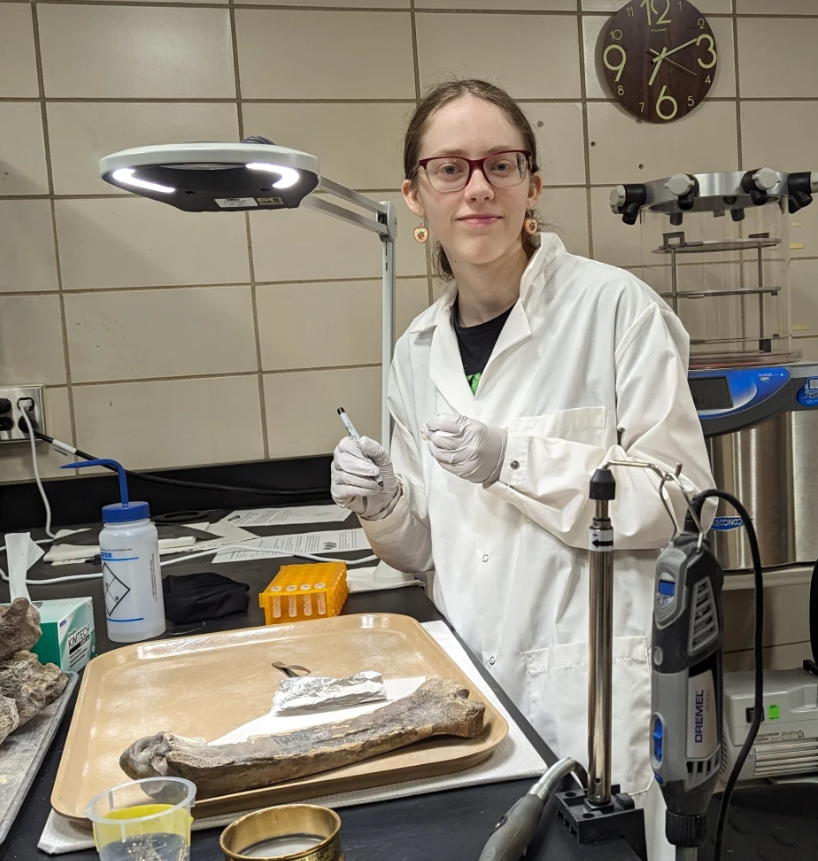
Dr. Diou Luo MBBS, PhD – Postdoctoral Research Associate
diouluo@iastate.edu
With a background in medicine and clinical experience as an anesthesiologist, I bring a translational perspective to neuroscience research. My current work as a postdoctoral Research Associate on an NIH-funded project investigates the long-term neurological effects of organophosphate (OP) nerve agent exposure. Using rodent models, I study how OP-induced status epilepticus triggers chronic neuroinflammation, hyperexcitability, and neurodegeneration. My focus is on Fyn kinase signaling and its role in pathological neuron-glia interactions, with the goal of identifying targeted interventions for epilepsy and related disorders. This research builds upon my prior training in molecular and cellular biology and animal studies, as well as my postdoctoral work on spinal muscular atrophy (SMA), where I explored therapeutic splicing modulation, engineered snRNA strategies, and the role of circular RNAs. My clinical background continues to inform and inspire my efforts to understand neurological disease mechanisms and develop effective treatments.

Dr. Nyzil Massey DVM, PhD – Postdoctoral Research Associate
nyzil@iastate.edu
Nyzil completed his Bachelor of Veterinary and Animal Sciences (DVM equivalent) in India. As a researcher with a deep-rooted passion for cellular and molecular neuroscience, Dr. Massey’s work centers on understanding the complex intersections of neurotoxicity, neuroinflammation, and neurodegeneration. Through his PhD and postdoctoral research, he has explored the signaling pathways underlying neuroinflammatory responses and neurodegenerative changes induced by exposure to neurotoxic environmental agents, including organophosphates. Leveraging in-vitro, ex-vivo, and in-vivo models. He has investigated mechanisms such as mitochondrial dysfunction, immune responses, and neurobehavioral alterations, with the aim of translating these insights into potential therapeutic approaches. His future research projects will focus on how synaptic physiology impacts neuroinflammatory diseases and neurodegeneration, and integrating advanced techniques like multi-omics profiling and neuroimaging, with a particular attention to investigate the neurotoxic effects of organophosphates across developmental stages and how these processes differ by age and sex.

Nikhil Sanjay Rao DVM, MVSc – Graduate Student
nikhilr@iastate.edu
Nikhil is a PhD student and his research focuses on targeting the neuroinflammatory pathways in epilepsy and epileptogenesis through novel therapeutic interventional drugs in animal models of temporal lobe epilepsy (TLE) and to study their efficacy at modifying the disease progression and neurodegenerative changes in the epileptic brain. He has a passion for neuropathology and microscopic digital image analysis. He enjoys mentoring and teaching Undergrad and Graduate students in the lab.

Christina Meyer BS, MS – Graduate Student
cnameyer@iastate.edu
Christina Meyer is a PhD student investigating neuroinflammation and neurodegeneration in animal models of epilepsy. Specifically, she has been testing the antioxidant drug Mitoapocynin to reduce oxidative stress in the brain. There is much to discover about the brain and that’s what makes it all the more interesting. Christina is involved in the graduate community by serving on the CVM association of graduate students committee. Overall, she is excited to see what the future holds for the field of neurology and is grateful to have such a wonderful team to bring new discoveries in the field of epilepsy research.

Suraj Sundara Vasanthi DVM, MVSc – Graduate Student
surajsv@iastate.edu
Suraj is a PhD student whose research focuses on understanding organophosphate-induced epilepsy. Suraj’s research is characterized by a multidisciplinary approach, drawing on insights from fields such as neuroscience and pharmacology. Explicitly, he has been aiming to optimize the novel neuroprotective efficacy of therapeutic agents such as 1400W and saracatinib targeting neuroinflammatory pathways in organophosphate models of epilepsy.

Sirisha Parameswaran DVM – Graduate Student
sirisha@iastate.edu
Sirisha Parameswaran holds a Bachelor of Veterinary Science & Animal Husbandry (equivalent to DVM) from India and is currently a first year PhD student in Dr Thippeswamy’s lab. She is also currently completing her Master’s from VMPM department at Iowa State University. Additionally, she has also cleared her North American Veterinary License Examination (NAVLE) and is on the path to be certified veterinarian through the Educational Commission for Foreign Veterinary Graduates (ECFVG) program. She is a veterinarian with a profound passion for advancing biomedical knowledge and improving healthcare outcomes. Her research interests lie at the intersection of veterinary medicine, laboratory animal science and human medicine. With a strong commitment to the ethical and humane treatment of laboratory animals, Sirisha aspires to leverage her veterinary expertise to bridge the gap between clinical practice and experimental research, ultimately making meaningful contributions to the advancement of medical science. Beyond her academic and research pursuits, she is also a skilled classical dancer, bringing creativity and discipline to every aspect of her work.
Former Lab Members

Dr. Marson Putra MD, PhD
mrputra@iastate.edu
Marson is a neurobiologist with an immense interest in epilepsy and seizure-related disorders. His research focus has been to identify biomolecular signaling involved in the progression of epileptogenesis. For instance, how aberrant astrocytes, microglia, and other supporting cells contribute to the development of neuronal hyperexcitability, and neurodegeneration leading to the incidence of spontaneous recurrent seizures. We utilize several techniques including immunofluorescence, western blot, EEG telemetry, immunoprecipitation, and many more to dissect the underlying mechanisms of epilepsy. Hopefully, understanding the causes of epilepsy will shed light on the betterment of epilepsy treatment and management.

Jada Wilson
Hello! My name is Jada and I am a senior at Iowa State majoring in biology going towards the pre-med track. (Fall 2024 Graduate)
Undergraduate Research Assistants

Arann Raven
Arann Raven is a senior undergraduate studying Biology and Anthropology, with an interest in evolutionary history and biological systems. She is planning to pursue graduate studies in physical anthropology.

Grace Ann Lacanglacang
I am an animal science major on the pre-vet track. I am excited to contribute to Dr. Swamy’s research!

Eliza Beebout
I’m Eliza Beebout, a sophomore studying Genetics on the pre-med track.

Jacob Olsen
Jacob is a third-year genetics major.

Christopher Buchwald
Chris is a junior majoring in Kinesiology and minoring in Biology. He is a pre-med student interested in Orthopedic Surgery or Sports Medicine.